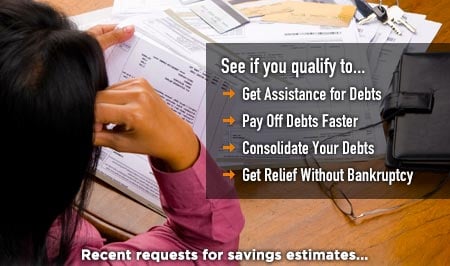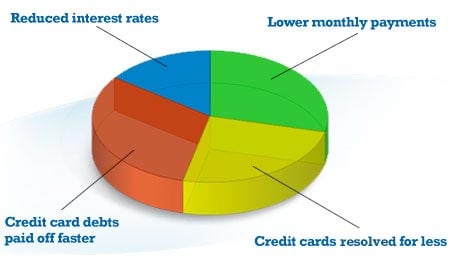
Non-Profit Debt Consolidation - New York
As much as the exorbitant cost of real estate or the swarm of people flocking to Times Square, credit card debt and something called "non-profit debt consolidation" have become more a part of life for many New Yorkers as well as consumers elsewhere. If you are also experiencing financial difficulties and are struggling with credit card debts, you may be interested in finding out how much savings you can potentially get by consolidating your debts.
Debt consolidation, or a debt management plan (DMP), allows you to make one, consolidated, and more affordable monthly payment to a credit counseling agency. For those looking for debt relief these days, it has become relatively easy, to find a reputable consolidation company - either "for profit" or "non-profit" - to help you manage your credit card debts and other types of unsecured debts (like medical bills, department store charges, or utilities).
Another option available for many consumers is a debt consolidation loan, where you can pay off your credit card debts with one, lower interest loan. Many consumers have made these options popular alternatives to bankruptcy, which has a more damaging and longer lasting impact on your credit.
If you want to find out your debt relief options, answer a few, simple questions to get a free debt relief analysis and savings estimate.
Debt Consolidation Loan Risks
As mentioned earlier, debt relief (including non-profit debt consolidation) has helped many consumers reduce their credit card and unsecured debts, and in some cases, may even help those with bad credit get their finances back on track. In New York, where the average debt amount is typically upwards of $15,000, credit card debts have become a serious problem.
If you are also struggling with unmanageable debts, one option available is a debt consolidation loan. Debt consolidation loans typically involve combining high-interest credit card debts and other unsecured debts into one, lower interest loan.
However, a debt consolidation loan involves taking unsecured debt and paying it off with funds that come by way of a "secured" loan, meaning, a loan where you would have had to put up your home or other asset to get approved. Here is where a debt consolidation loan can present a new challenge.
Many consumers who get approved for debt consolidation loans typically do not have the discipline to stop using their credit cards, and eventually, they start accumulating new, high-interest charges As a result, many of these consumers end up having to deal with new credit card debts on top of their personal loan.
Debt Consolidation - A Better Alternative?
Debt consolidation through, for instance, non-profit credit counseling on the other hand, is fundamentally different from debt consolidation loans. What relief through debt consolidation (without loans) involves is combining, or consolidating, your high-interest credit card and unsecured debts into a single, more manageable, and more structured monthly payment made to a credit counseling agency.
When you enroll in a debt consolidation program, credit counselors review your outstanding debts, finances, and overall ability to pay your debts. When they have a clear picture of your financial situation, credit counselors will generally develop a game plan that can help you reduce your debts.
What this typically involves is submitting proposals, on your behalf, to your individual creditors asking for reduced interest rates, or the waiving or elimination of late fees and other penalties. Creditors that agree to these proposals are placed into the debt management plan.
The goal of debt consolidation is, as mentioned earlier, to get you on a single, more manageable, and more structured payment plan so that you can reduce your credit card and other unsecured debts sooner than if you only continued to make the minimum monthly payments at higher interest rates.
Know Your Consumer Options
The bottom line is, regardless of the debt relief method (i.e., non-profit debt consolidation, consolidation loans, or debt settlement), as a consumer, it is always wise to understand the pros and cons of each, understand how long it will take for you to realize your savings, and the potential impact to your credit.
Take the time to do your due diligence when choosing a debt relief service so that you can be well on your way to reducing your debts.
Compare your debt relief options. Request a free debt relief analysis and savings estimate. - start here.





















